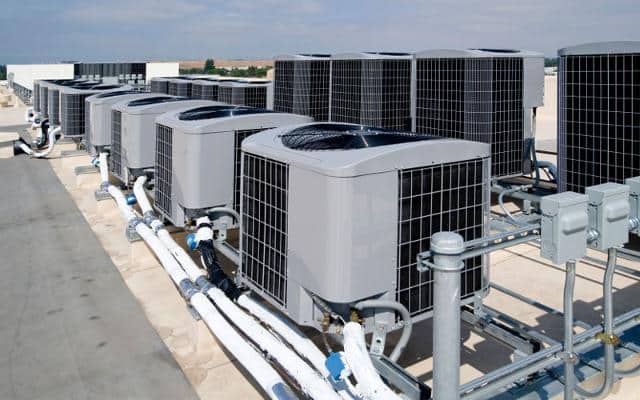For businesses, maintaining a comfortable and healthy indoor environment is essential for both employees and customers. This is largely facilitated by the HVAC system, which regulates temperature, airflow, and air quality. However, like all mechanical systems, commercial HVAC units have a finite lifespan. Determining when to replace them can be a complex decision involving several factors. Engaging with commercial HVAC services can help businesses make informed decisions about replacement, ensuring optimal performance and efficiency. This article explores the key considerations for determining the replacement cycle of commercial HVAC units.
Understanding the Lifespan of Commercial HVAC Units
The lifespan of commercial HVAC units varies depending on the type of system, quality of installation, usage patterns, and how well they have been maintained. On average, a well-maintained commercial HVAC unit can last between 15 to 20 years. However, several signs indicate when a unit might need replacing before it reaches the end of its theoretical lifespan.
Signs It’s Time for Replacement
- Frequent Repairs: If your HVAC system requires constant repairs, it might be more cost-effective to replace it.
- Energy Inefficiency: An increase in energy bills can indicate that your HVAC system is no longer operating efficiently.
- Inconsistent Performance: Difficulty in maintaining consistent temperatures or reduced air quality can signal that your system is failing.
The Role of Commercial HVAC Services in Replacement
Engaging commercial HVAC services for regular maintenance can extend the life of your system. These professionals can also provide valuable advice on when to consider replacement based on a thorough assessment of your current system’s performance and efficiency.
Professional Assessment
A professional commercial HVAC service will evaluate the condition of your unit, considering its age, repair history, and performance. They can identify whether upgrading to a more efficient model could provide cost savings and improved comfort in the long run.
Considering Technological Advancements
HVAC technology evolves rapidly, with newer models offering significant improvements in energy efficiency and environmental impact. Commercial HVAC services can advise on the latest technologies, potentially lowering operational costs and contributing to sustainability goals.
Planning for HVAC Replacement
Deciding to replace a commercial HVAC unit involves careful planning. Factors such as the timing of replacement, budgeting, and selecting the right system are crucial to minimize disruption and ensure the best return on investment.
Timing and Budgeting
Ideally, replacement should be planned for off-peak times to reduce the impact on business operations. Commercial HVAC services can provide quotes and timelines, helping to budget for the investment. It’s also worth exploring financing options or rebates for energy-efficient systems.
Selecting the Right System
Choosing the right HVAC system is critical. Considerations include the size of the space, the specific needs of your business, and energy efficiency ratings. Consulting with a professional HVAC service ensures that you select a system that meets your requirements and is future-proofed against evolving needs.
Conclusion
Determining the right time to replace commercial HVAC units involves several considerations, from the age and condition of the existing system to the benefits of new technology. Regular maintenance and consultation with commercial HVAC services are essential in making an informed decision. By planning replacement thoughtfully, businesses can ensure continued comfort, reduce operational costs, and achieve greater energy efficiency, contributing to a healthier bottom line and environment.













![Tray Cable vs. Conduit: A High-Level [but Helpful] Comparison](https://technologistes.com/wp-content/uploads/2023/02/Tray-Cable-120x86.jpg)